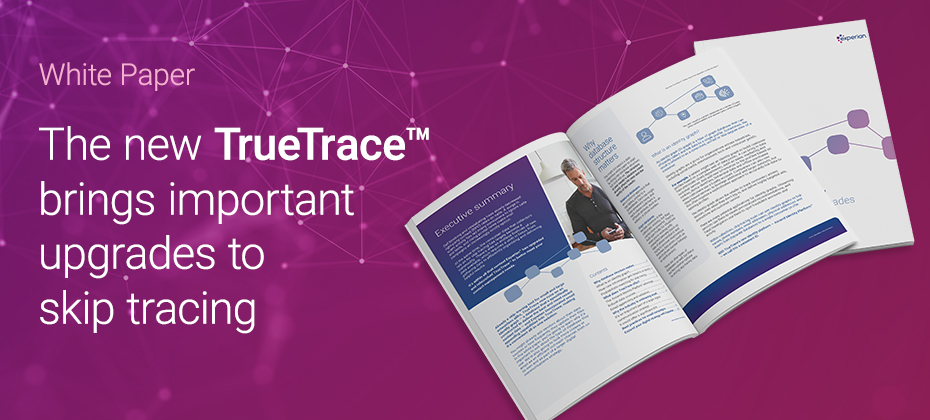With great risk comes great reward, as the saying goes. But when it comes to business, there's huge value in reducing and managing that risk as much as possible to maximize benefits — and profits.
In today's high-tech strategic landscape, financial institutions and other organizations are increasingly using risk modeling to map out potential scenarios and gain a clearer understanding of where various paths may lead. But what are risk models really, and how can you ensure you're creating and using them correctly in a way that actually helps you optimize decision-making? Here, we explore the details.
What is a risk model?
A risk model is a representation of a particular situation that's created specifically for the purpose of assessing risk. That risk model is then used to evaluate the potential impacts of different decisions, paths and events.
From assigning interest rates and amortization terms to deciding whether to begin operating in a new market, risk models are a safe way to analyze data, test assumptions and visualize potential scenarios.
Risk models are particularly valuable in the credit industry. Credit risk models and credit risk analytics allow lenders to evaluate the pluses and minuses of lending to clients in specific ways. They are able to consider the larger economic environment, as well as relevant factors on a micro level. By integrating risk models into their decision-making process, lenders can refine credit offerings to fit the assessed risk of a particular situation.
It goes like this: a team of risk management experts builds a model that brings together comprehensive datasets and risk modeling tools that incorporate mathematics, statistics and machine learning. This predictive modeling tool uses advanced algorithmic techniques to analyze data, identify patterns and make forecasts about future outcomes. Think of it as a crystal ball — but with science behind it. Your team can then use this risk model for a wide range of applications: refining marketing targets, reworking product offerings or reshaping business strategies.
How can risk models be implemented?
Risk models consolidate and utilize a wide variety of data sets, historical benchmarks and qualitative inputs to model risk and allow business leaders to test assumptions and visualize the potential results of various decisions and events. Implementing risk modeling means creating models of systems that allow you to adjust variables to imitate real-world situations and see what the results might be.
A mortgage lender, for example, needs to be able to predict the effects of external and internal policies and decisions. By creating a risk model, they can test how scenarios such as falling interest rates, rising unemployment or a shift in loan acceptance rates might affect their business — and make moves to adjust their strategies accordingly.
One aspect of risk modeling that can't be underestimated is the importance of good data, both quantitative and qualitative. Efforts to implement or expand risk modeling should begin with refining your data governance strategy. Maximizing the full potential of your data also requires integrating data quality solutions into your operations in order to ensure that the building blocks of your risk model are as accurate and thorough as possible.
It's also important to ensure your organization has sufficient model risk governance in place. No model is perfect, and each comes with its own risks. But these risks can be mitigated with the right set of policies and procedures, some of which are part of regulatory compliance. With a comprehensive model risk management strategy, including processes like back testing, benchmarking, sensitivity analysis and stress testing, you can ensure your risk models are working for your organization — not opening you up to more risk.
How can risk modeling be used in the credit industry?
Risk modeling isn't just for making credit decisions. For instance, you might model the risk of opening or expanding operations in an underserved country or the costs and benefits of existing one that is underperforming. In information technology, a critical branch of virtually every modern organization, risk modeling helps security teams evaluate the risk of malicious attacks.
Banking and financial services is one industry for which understanding and planning for risk is key — not only for business reasons but to align with relevant regulations. The mortgage lender mentioned above, for example, might use credit risk models to better predict risk, enhance the customer journey and ensure transparency and compliance.
It's important to highlight that risk modeling is a guide, not a prophecy. Datasets can contain flaws or gaps, and human error can happen at any stage.. It's also possible to rely too heavily on historical information — and while they do say that history repeats itself, they don't mean it repeats itself exactly. That's especially true in the presence of novel challenges, like the rise of artificial intelligence. Making the best use of risk modeling tools involves not just optimizing software and data but using expert insight to interpret predictions and recommendations so that decision-making comes from a place of breadth and depth.
Why are risk models important for banks and financial institutions?
In the world of credit, optimizing risk assessment has clear ramifications when meeting overall business objectives. By using risk modeling to better understand your current and potential clients, you are positioned to offer the right credit products to the right audience and take action to mitigate risk.
When it comes to portfolio risk management, having adequate risk models in place is paramount to meet targets. And not only does implementing quality portfolio risk analytics help maximize sales opportunities, but it can also help you identify risk proactively to avoid costly mistakes down the road. Risk mitigation tools are a key component of any risk modeling strategy and can help you maintain compliance, expose potential fraud, maximize the value of your portfolio and create a better overall customer experience.
Advanced risk modeling techniques
In the realm of risk modeling, the integration of advanced techniques like machine learning (ML) and artificial intelligence (AI) is revolutionizing how financial institutions assess and manage risk. These technologies enhance the predictive power of risk models by allowing for more complex data processing and pattern recognition than traditional statistical methods.
Machine learning in risk modeling: ML algorithms can process vast amounts of unstructured data — such as market trends, consumer behavior and economic indicators — to identify patterns that may not be visible to human analysts. For instance, ML can be used to model credit risk by analyzing a borrower’s transaction history, social media activities and other digital footprints to predict their likelihood of default beyond traditional credit scoring methods.
Artificial intelligence in decisioning: AI can automate the decisioning process in risk management by providing real-time predictions and risk assessments. AI systems can be trained to make decisions based on historical data and can adjust those decisions as they learn from new data. This capability is particularly useful in credit underwriting where AI algorithms can make rapid decisions based on market conditions.
Financial institutions looking to leverage these advanced techniques must invest in robust data infrastructure, skilled personnel who can bridge the gap between data science and financial expertise, and continuous monitoring systems to ensure the models perform as expected while adhering to regulatory standards.
Challenges in risk model validation
Validating risk models is crucial for ensuring they function appropriately and comply with regulatory standards. Validation involves verifying both the theoretical foundations of a model and its practical implementation.
Key challenges in model validation:
Model complexity: As risk models become more complex, incorporating elements like ML and AI, they become harder to validate. Complex models can behave in unpredictable ways, making it difficult to understand why they are making certain decisions (the so-called "black box" issue).
Data quality and availability: Effective validation requires high-quality, relevant data. Issues with data completeness, accuracy or relevance can lead to incorrect model validations.
Regulatory compliance: With regulations continually evolving, keeping risk models compliant can be challenging. Different jurisdictions may have varying requirements, adding to the complexity of validation processes.
Best practices:
Regular reviews: Continuous monitoring and periodic reviews help ensure that models remain accurate over time and adapt to changing market conditions.
Third-party audits: Independent reviews by external experts can provide an unbiased assessment of the risk model’s performance and compliance.
These practices help institutions maintain the reliability and integrity of their risk models, ensuring that they continue to function as intended and comply with regulatory requirements.
Read more: Blog post: What is model governance?
How Experian can help
Risk is inherent to business, and there's no avoiding it entirely. But integrating credit risk modeling into your operations can ensure stability and profitability in a rapidly evolving business landscape.
Start with Experian's credit modeling services, which use expansive data, analytical expertise and the latest credit risk modeling methodologies to better predict risk and accelerate growth.
Learn more
*This article includes content created by an AI language model and is intended to provide general information.



